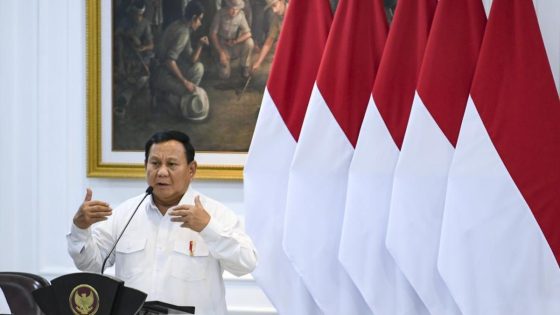On January 22, 2025, President Prabowo Subianto announced a significant budget cut aimed at saving Rp306.69 trillion from the 2025 state budget (APBN). This move, outlined in a presidential instruction, focuses on reducing non-essential expenses such as travel and honorarium across ministries and local governments. How will these cuts impact Indonesia‘s economy and public services?
- Prabowo targets Rp306.69 trillion budget savings.
- Cuts include travel expenses and honorariums.
- Priority remains on salaries and social aid.
- Potential negative impact on tourism sector.
- Concerns over economic growth due to cuts.
- Need for solutions for affected businesses.
Indonesia’s 2025 Budget Cuts: What You Need to Know
How will these budget cuts affect public services in Indonesia? The government’s decision to reduce travel expenses raises questions about the impact on essential services and economic growth. With a focus on non-urgent spending, the cuts could lead to a shift in funding priorities.
Understanding the Implications of Budget Cuts in Indonesia
Prabowo’s budget cuts are aimed at streamlining government spending, but what does this mean for the economy? The reduction of Rp306.69 trillion includes:
- Rp256.1 trillion cut from ministry budgets.
- Rp50.59 trillion reduction in regional transfer funds.
- Focus on preserving essential services like salaries and social aid.
- Potential negative impact on tourism and local economies.
Impact on Tourism and Local Economies
The cuts to travel budgets could significantly affect Indonesia’s tourism sector. With fewer government trips, hotels and restaurants may see a decline in business. This raises the question: can Indonesia’s tourism industry sustain itself without government support?
Concerns from Economic Analysts
Economic analysts warn that these budget cuts may hinder economic growth. They argue that cutting travel expenses could stifle tourism, which is vital for local economies. Will the government find alternative ways to support these sectors?
Future Outlook for Indonesia’s Economy
As the government reallocates funds, the long-term effects on Indonesia’s economy remain uncertain. Will the focus on essential services lead to a more sustainable budget in the future? Only time will tell.
In conclusion, while the budget cuts aim to streamline spending, the potential repercussions on public services and economic growth are significant. Stakeholders must monitor these changes closely to adapt to the evolving economic landscape.
































